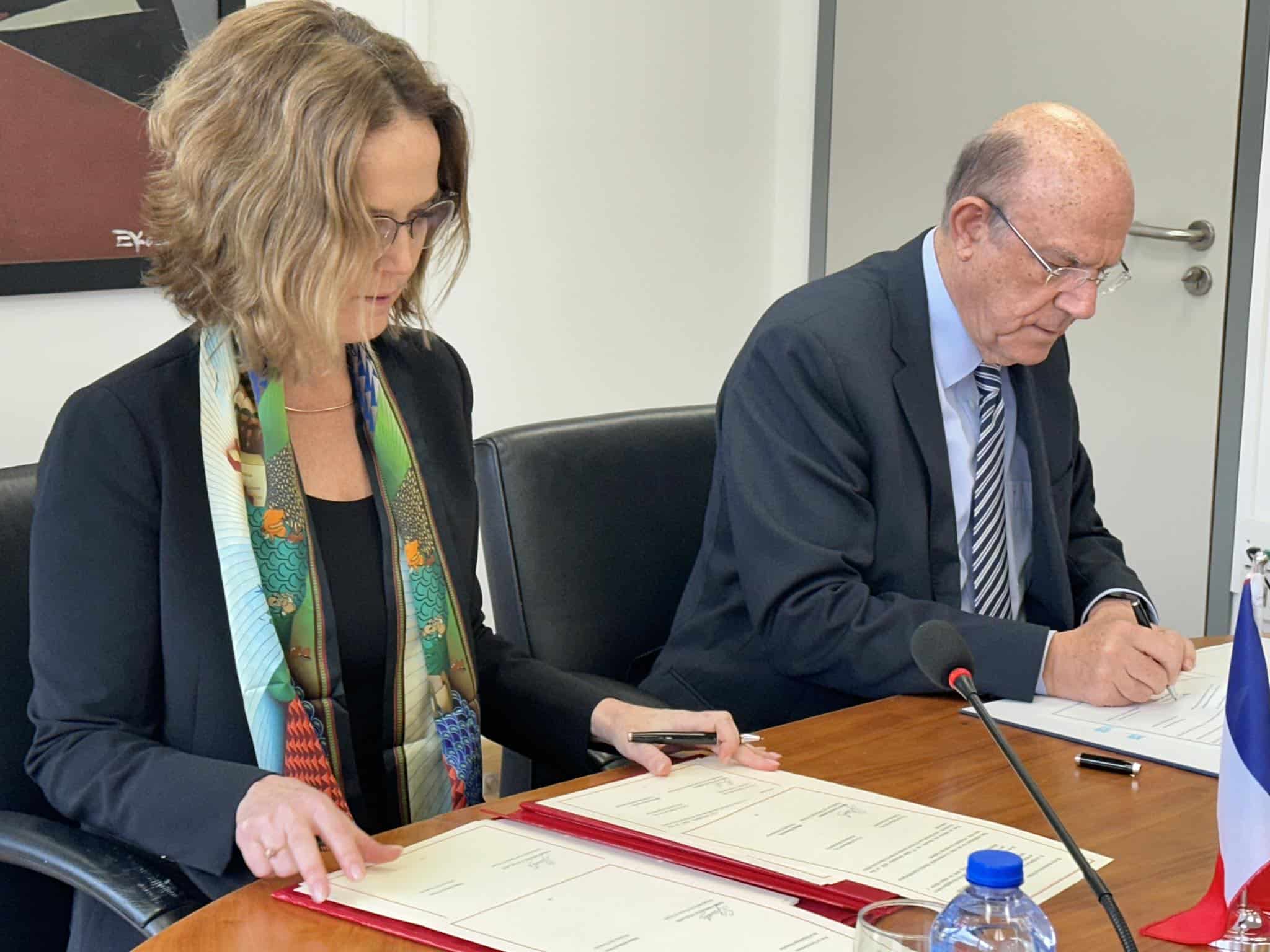The Ministry of Finance on Monday announced that the Republic of Cyprus and France ratified an updated double tax treaty, first announced on Friday, in an effort to eradicate double taxation concerns and bolster measures against tax avoidance.
According to the statement, the updated agreement renews a previous arrangement between the two countries dating back to 1981.
The revised treat was signed on behalf of Cyprus by Finance Minister Makis Keravnos and on behalf of the French government by Cyprus Ambassador Salina Grenet-Catalano. The signing ceremony took place at 12:15 pm in the Minister of Finance’s conference room.
Following the signing, Finance Minister Keravnos expressed his satisfaction with the revised treaty, stating that signing the agreement between the Cypriot government and the French government was a matter of great joy. He also thanked the French Ambassador for their mutual collaboration on this matter.
- French ambassador Salina Grenet-Catalano and Finance Minister Makis Keravnos
- French ambassador Salina Grenet-Catalano and Finance Minister Makis Keravnos
- French ambassador Salina Grenet-Catalano and Finance Minister Makis Keravnos
- French ambassador Salina Grenet-Catalano and Finance Minister Makis Keravnos
Explaining the content of the agreement, Keravnos highlighted that it modernises an agreement dating back to 1981 and is currently applicable to the incomes of natural or legal persons who are tax residents of the Republic of Cyprus and the French Republic, respectively.
According to the provisions of the agreement, it covers income tax, corporate tax, a special contribution for defence, and capital gains tax.
What is more, the Finance Minister expressed confidence that this agreement will create even better conditions for collaboration between Cyprus and France in the economic sector and pave the way for more investments for the mutual benefit of both countries and their people.
On her part, Catalano acknowledged that this agreement, existing since September 1981, needed updating in order to factor in new regulations and data.
“We are very pleased with the signing of this new agreement between France and Cyprus, which will provide our citizens and our businesses with an updated legal framework on tax matters,” she said.
Additionally, she emphasised that this agreement reflects the strong bonds between the two countries and aims to strengthen cooperation, especially in the financial sector.
Furthermore, Catalano highlighted that it will enhance cooperation between the tax services of the two countries, opening new avenues for collaboration.
Finally, she explained that the primary objective is to establish a legal framework that aligns with the latest international rules and data on taxation, representing a step forward in their excellent bilateral relations, specifically in tax matters.











Click here to change your cookie preferences